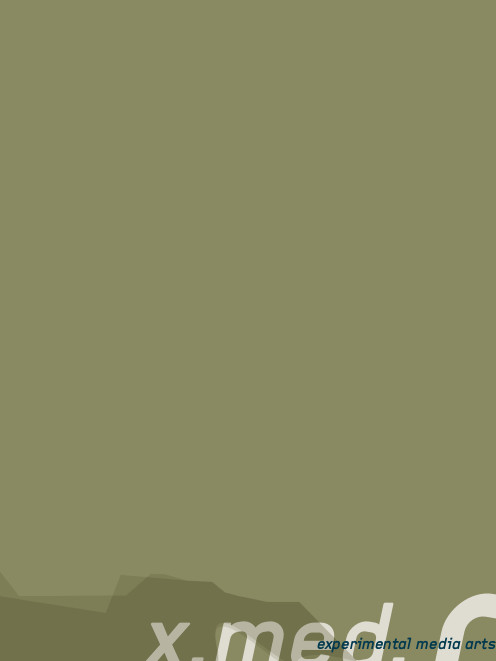Alexander R. Galloway: Protocol: How Control Exists After Decentralization (2004)
Filed under book | Tags: · code, control society, decentralization, internet, network culture

“Is the Internet a vast arena of unrestricted communication and freely exchanged information or a regulated, highly structured virtual bureaucracy? In Protocol, Alexander Galloway argues that the founding principle of the Net is control, not freedom, and that the controlling power lies in the technical protocols that make network connections (and disconnections) possible. He does this by treating the computer as a textual medium that is based on a technological language, code. Code, he argues, can be subject to the same kind of cultural and literary analysis as any natural language; computer languages have their own syntax, grammar, communities, and cultures. Instead of relying on established theoretical approaches, Galloway finds a new way to write about digital media, drawing on his backgrounds in computer programming and critical theory. “Discipline-hopping is a necessity when it comes to complicated socio-technical topics like protocol,” he writes in the preface.
Galloway begins by examining the types of protocols that exist, including TCP/IP, DNS, and HTML. He then looks at examples of resistance and subversion—hackers, viruses, cyberfeminism, Internet art—which he views as emblematic of the larger transformations now taking place within digital culture. Written for a nontechnical audience, Protocol serves as a necessary counterpoint to the wildly utopian visions of the Net that were so widespread in earlier days.”
Publisher MIT Press, 2004
ISBN 0262072475, 9780262072472
260 pages
Review: Jason Lesko (RCCS, 2005).
PDF (updated 2021-12-16)
Comment (1)X-MED-A: Experimental Media Arts (2006)
Filed under book | Tags: · art, code, experimental art, generativity, media art, media ecology, music, performance, software, sound art, sound recording, technology, textile, video, workshop

“In X-MED-A publication you can find more than 40 contributions from a motley crew of artists, designers and engineers, including Matthew Fuller, Joey Berzowska, Casey Reas, Akihiro Kubota along with many other clever and lovely people. The articles, interviews, poems and patches reflect upon education and play, poetics and aesthetics, technology and collaboration, politics and economics of experimental media arts, steeped in a sea of photographs, diagrams, screenshots and illustrations.
The review originated from a series of technically and artistically diverse workshops, organised by four independent technological arts initiatives in Brussels: FoAM, nadine, okno and iMAL. The workshops responded to the needfor a place where continuous learning and dialogue between peers is encouraged, with the objective of sharing of experience, skills and knowledge among diverse groups interested in emerging ideas, media and technologies.”
Contributions by mxhz.org, Guy van Belle, Angez Bewer, Bartaku, Johanna Berzowska, Nicolas Collins, Alejandra Perez Nunez, Akihiro Kubota, Franziska Huebler, Carole Collet, FoAM, Eleonora Oreggia, Casey Reas and Ben Fry, jasch, David Griffiths, Toplap, so-on, Xavier Ess, Els Viaene and Dieter van Dam, Code31, Nadine, Yves Bernard, HC Gilje, Rachel Wingfield, Christoph de Boeck, Isjtar, Nicolas d’Alessandro, Jelle Dierickx, Jenny Tillotson, Jessica Hemmings, Toysband, Alejo Duque, Erik Parys, Pablo Diartinez
With an introduction by Matthew Fuller
Edited by Maja Kuzmanovic (FoAM), nadine, Annemie Maes (okno), Yves Bernard (iMAL)
Assistant editor: Alkan Chipperfield
Publisher: FoAM, nadine, okno, and iMAL, Brussels, 2006
Creative Commons Attribution-NoDerivs 2.5 License
ISBN 908107332X
156 pages
Project website
Editor (FoAM)
PDF (updated on 2021-12-29)
Comment (0)Matthew Fuller (ed.): Software Studies: A Lexicon (2008)
Filed under book | Tags: · algorithm, code, computing, ethnocomputing, interactivity, interface, programming, software, software art, software studies

“This collection of short expository, critical, and speculative texts offers a field guide to the cultural, political, social, and aesthetic impact of software. Computing and digital media are essential to the way we work and live, and much has been said about their influence. But the very material of software has often been left invisible. In Software Studies, computer scientists, artists, designers, cultural theorists, programmers, and others from a range of disciplines each take on a key topic in the understanding of software and the work that surrounds it. These include algorithms; logical structures; ways of thinking and doing that leak out of the domain of logic and into everyday life; the value and aesthetic judgments built into computing; programming’s own subcultures; and the tightly formulated building blocks that work to make, name, multiply, control, and interweave reality.
The growing importance of software requires a new kind of cultural theory that can understand the politics of pixels or the poetry of a loop and engage in the microanalysis of everyday digital objects. The contributors to Software Studies are both literate in computing (and involved in some way in the production of software) and active in making and theorizing culture. Software Studies offers not only studies of software but proposes an agenda for a discipline that sees software as an object of study from new perspectives.”
Contributors: Alison Adam, Wilfried Hou Je Bek, Morten Breinbjerg, Ted Byfield, Wendy Hui Kyong Chun, Geoff Cox, Florian Cramer, Cecile Crutzen, Marco Deseriis, Ron Eglash, Matthew Fuller, Andrew Goffey, Steve Goodman, Olga Goriunova, Graham Harwood, Friedrich Kittler, Erna Kotkamp, Joasia Krysa, Adrian Mackenzie, Lev Manovich, Michael Mateas, Nick Montfort, Michael Murtaugh, Jussi Parikka, Soren Pold, Derek Robinson, Warren Sack, Grzesiek Sedek, Alexei Shulgin, Matti Tedre, Adrian Ward, Richard Wright, Simon Yuill.
Publisher The MIT Press, 2008
ISBN 0262062747, 9780262062749
334 pages
PDF (updated on 2015-7-9)
Comment (0)
